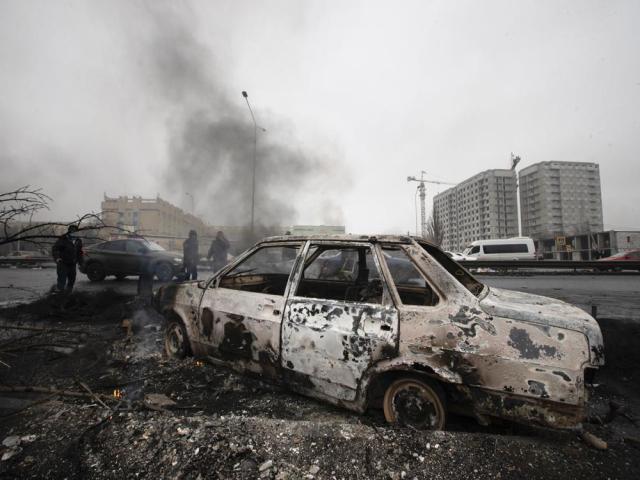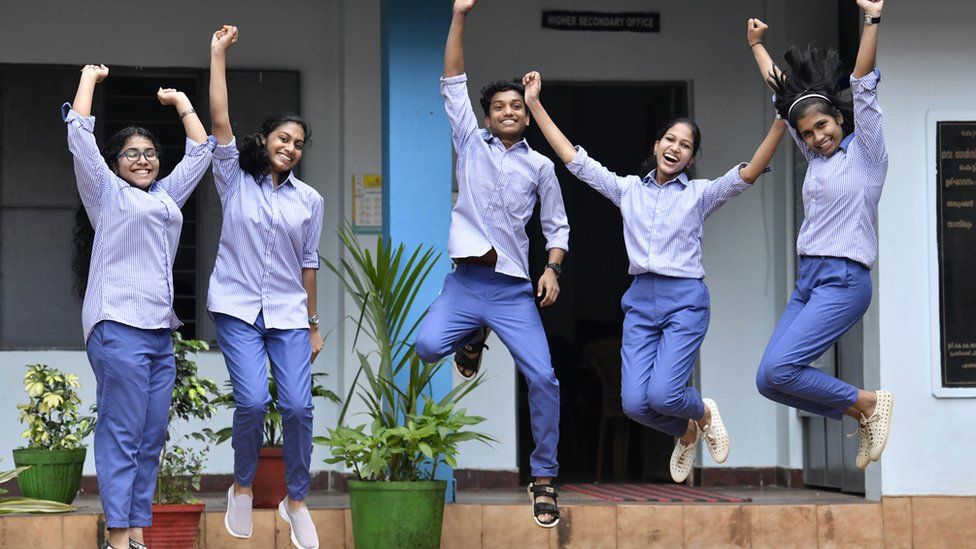Former anti-terror chief arrested over Kazakhstan protests

The former head of Kazakhstan’s counterintelligence and anti-terror agency has been arrested on charges of attempted government overthrow in the wake of violent protests that the president has blamed on foreign-backed terrorists.
The arrest of Karim Masimov was announced Saturday by the National Security Committee, which Masimov headed until he was removed this week by President Kassym-Jomart Tokayev.
Authorities say security forces killed 26 demonstrators in this week’s unrest and that 18 law-enforcement officers died. More than 4,400 people have been arrested, the Interior Ministry said Saturday.
The protests in the Central Asian nation were the most widespread since Kazakhstan’s independence from the Soviet Union in 1991.
The unrest began in the country’s far west as protests against a sharp rise in prices for liquefied petroleum gas that is widely used as vehicle fuel. The protests spread to the country’s largest city, Almaty, where demonstrators seized and burned government buildings.
At Tokayev’s request, the Collective Security Treaty Organization, a Russia-led military alliance of six former Soviet states, authorized sending about 2,500 mostly Russian troops to Kazakhstan as peacekeepers.
Some of the force is guarding government facilities in the capital, Nur-Sultan, which “made it possible to release part of the forces of Kazakhstani law enforcement agencies and redeploy them to Almaty to participate in the counter-terrorist operation,” according to a statement from Tokayev’s office.
Tokayev said Friday that he had authorized security forces to shoot to kill those participating in unrest. On Saturday, there were no immediate reports of trouble in Almaty. Police dispersed a demonstration and detained people in the city of Aktau, while sporadic gunfire was heard in Kyzylorda, Russian news agency Sputnik said.
Sputnik later reported a clash outside Almaty on the main highway leading to Kyrgyzstan, but its size and intnsity were unclear. The Russian internet broadcaster Dozhd said police fired weapons into the air and at the ground outside the city morgue.
No details were given about what Masimov, the former security agency head, was alleged to have done that would constitute an attempted government overthrow. The National Security Committee, a successor to the Soviet-era KGB, is responsible for counterintelligence, the border guards service and anti-terror activities.
Although the protests began as denunciations of the near-doubling of LPG prices at the start of the year, their spread and intense violence indicate they reflected widespread dissatisfaction in the former Soviet republic run by the same party for more than 30 years.
Many demonstrators shouted “Old man out,” a reference to Nursultan Nazarbayev, who was president from Kazakhstan’s independence until he resigned in 2019 and anointed Tokayev as his successor.
Nazarbayev, who was given the title “ebasy,” or leader of the nation, retained substantial power as head of the National Security Council. But Tokayev removed him as council head amid this week’s unrest, possibly aiming at a concession to mollify protesters.
Nazarbayev remained invisible during the chaos, but on Saturday his spokesman said Nazarbayev was in the capital and “calls on everyone to rally around the president of Kazakhstan to overcome current challenges and ensure the integrity of our country.”
In the face of mounting domestic unrest and apparent uncertainty over the loyalty of law enforcement and military forces, Kazakhstan’s president has turned to a Russia-dominated security alliance for help.
Within hours, the Collective Security Treaty Organization, or CSTO, announced its readiness to accept the plea for assistance. By Thursday, planeloads of Russian elite airborne units were flying into Kazakhstan. Kazakh Deputy Foreign Minister Shukhrat Nuryshev said 2,500 CSTO peacekeepers would be deployed.
This marks the first time the CSTO has been engaged in an active operation.
The bloc’s focus has instead been aimed more intensely on enhancing readiness for potential spillover from Afghanistan, which shares a long border with Tajikistan. Russia has around 7,000 troops stationed in that country.
WHY DID KAZAKHSTAN SUMMON CSTO SUPPORT?
To legitimize his plea for outside military help, Kazakh President Kassym-Jomart Tokayev went on television late Wednesday to say the unrest was being perpetrated by “international terrorist groups.” This framing was important because the CSTO is ostensibly designed to protect member states from external aggression. It’s unclear, however, which outside groups might be allegedly fomenting the trouble in Kazakhstan.
WHAT IS THE CSTO?
The Collective Security Treaty Organization was formed in the first half of the 1990s following the collapse of the Soviet Union. Besides Russia, it includes Armenia, Belarus, Kazakhstan, Kyrgyzstan, and Tajikistan.
Despite its name, the bloc has at times struggled to define its exact purpose. Failure to engage in numerous security crises among its members over the years has prompted security analysts to question its viability. Last spring, two members, Kyrgyzstan and Tajikistan, were engaged in a messy and bloody border dispute. The CSTO looked on impassively.

Kerala school uniform: Why some Muslim groups are protesting Published13 hours ago
- BBC presenter Yalda Hakim was born in Afghanistan. Her family fled in the 1980s, during the Russian occupation, but she has regularly reported.

Iraqi Prime Minister survives exploding drone assassination attempt
- Iraqi Prime Minister survives exploding drone assassination attemptIraqi Prime Minister survives exploding drone assassination attempt

Djokovic: Not isolating after COVID infection was ‘error’
- Novak Djokovic knew he’d tested positive for COVID-19 when he attended a newspaper interview and photo shoot in Serbia last month

In Israel, omicron drives records, zigzag policy, 4th shots
- Israel opened to tourists for the first time in nearly two years. After just a month, it slammed shut.